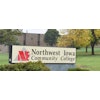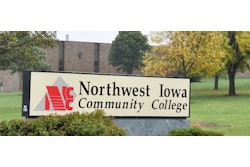Newly installed as president of Morton College, Dr. Leslie Navarro wanted to avoid appearing to be a micromanager, so she detailed staff members on how to negotiate a new contract with the faculty union.
That was in May 2008. The negotiations dragged on through the summer and into the beginning of the fall term at the community college outside Chicago in Cicero, Ill. “I just remember thinking that this just can’t go on,” Navarro says.
The first-time president got busy. She showed up at a bargaining session and made a date for a four-hour meeting with the leader of the statewide union, “a big gun” whom the campus unit had tapped to conduct the negotiations.
“It was probably less than an hour, and we knocked it out. We knocked out a five-year contract,” Navarro recalls. “It was amazing. He heard me talk. I heard him talk, and we just went page by page.”
There was a lesson in that 2008 breakthrough that Navarro has since applied across the range of her duties: “You can never do enough communication as a president. Some of my colleagues delegate communication. I don’t.”
That’s a practice that would make sense to Dr. John Roueche, director of the Community College Leadership Program at the University of Texas at Austin. It also would make him proud, because Navarro is a 2005 graduate of the doctoral program.
“When we are admitting students, we select people that we believe at that moment have excellent human skills, because leadership ultimately is about the ability of the leader to find common ground with people in the organization and agree on common goals and objectives and move forward,” Roueche says.
The program that he has led for 42 years, Roueche adds, “can teach them the management, the administrative things they need to master to be successful. But if you don’t know how to work with people, you are not going to be successful.”
When asked what has made them successful, Navarro and three other community college leaders from around the country — not graduates of the Texas program — echo many of Roueche’s ideas. They emphasize building relationships with students, faculty, staff and local communities; reaching out to a college’s constituencies; and communicating with them regularly.
The presidents and chancellors say, just as the Texas program teaches, that understanding an institution’s entire operation, from academics to finances, is a necessity. They also agree with Roueche on community college leaders needing to be visionary, innovative and creative to keep their institutions ahead of the curve and help them meet the current twin challenges of state funding cuts and rising enrollment.
Communication is Key
Since becoming chancellor of the Maricopa County Community College District in the Phoenix area nine years ago, Dr. Rufus Glasper has taken a methodical approach to communicating with constituencies on and off the 10 campuses in the nation’s largest community college district by enrollment.
Glasper meets quarterly with his chancellor’s advisory groups, each composed of leaders from different minority communities: African-American, Hispanic, Asian and Pacific Islander, Native American, gay, lesbian and disabled. The presidents of employee groups that mirror each of the advisory panels also attend the meetings.
“I think that that has served me well, and it has also served our communities well because they feel engaged,” Glasper says. “We are trying to give an opportunity for us to work individually and collectively with all of these individual groups.”
Dr. Andrew Jones, chancellor of Coast Community College District in Orange County, Calif., emphasizes that communication has to be two-way.
“You really need to listen to your people. You need to listen to your constituency. You need to be aware of what’s going on,” says Jones, who maintains an open-door policy as much as possible.
Just showing up, Navarro says, can be an important part of communicating.
“Sometimes [students] want you at the theater, and you can’t get up in the middle while the actors are still acting, so you stay for the whole thing,” Navarro says. “Then you’ve got to get up the next day and then show up and walk through the halls and talk to faculty. ‘How are you doing? How is it going?’ You get to know them at a working relationship level.”
A failure to communicate is a major pitfall, the community college leaders say.
“You can have the greatest ideas and be the smartest person in the world, but if you don’t have any followers, then you’re not a leader,” Jones says. “So we need to have people buy in and invest early. The only way that can happen is you have to let people have input.”
Knowing the Ins and Outs
Another pitfall, says Dr. Wright Lassiter, chancellor of the Dallas County Community College District in Texas, is lacking an understanding of all of an institution’s inner workings.
Lassiter says that years ago his mentor, Dr. Luther Foster, then president of Tuskegee University, advised him, “If you are going to be successful as a president, you have to be able to lead leaders, and you have to be able to demonstrate a broad understanding of the entire academic enterprise.”
Navarro says she got that understanding directly from the Community College Leadership Program, which sends teams of students to campuses to conduct a thorough assessment and write a collective report. She compares that experience to her current role as a member of a college accreditation team in the Midwest.
Like their counterparts around the country, the community colleges or entire districts that Navarro, Lassiter, Glasper and Jones lead are confronting the pressures of public funding cuts and higher enrollment. To cope with fewer resources or to find new ones, they are tapping their visionary bag of innovation and creativity.
Lassiter says a community college leader should have “an entrepreneurial mindset” and be “always scouting and looking for ways to enhance your organization.” His staff braces whenever he goes on vacation or is away for a few days, because “they know when I come back, there’ll be additional ideas that I put on the table for them to look at.”
To handle the current resource crunch, Glasper says the Maricopa district is moving toward “less bricks and more bytes,” by shifting some instruction online or into blended courses. A passion for fundraising has become a new criterion for hiring presidents in the district.
“Community colleges have not historically been major fundraisers,” Glasper notes.
Jones says the Coast Community College District is nudging its three campuses, which previously competed, to collaborate more — a change Roueche advocates. The district also intends to centralize some bureaucratic functions to make them more efficient.
Such changes are essential, Jones says, because the squeeze is already on — this spring there was no room for 22,000 students in one or more courses they wanted to take.
At Morton College, public funding has gone down while enrollment has jumped to more than 8,000, up from 5,000 when Navarro became president in 2008. But the college has been fortunate: It has avoided layoffs, and its academic programs have been growing.
Navarro envisioned that growth when she sat down to negotiate the union contract, which specifically allows for growth in the size and number of academic programs. It is the kind of advance preparation that Roueche advises Community College Leadership Program students to make.
“He used to say, ‘Are you the early bird or are you the worm?’ In other words, are you prepared?” Navarro recalls. “Everything that I’m doing here mirrors quite a bit of what I learned in the program.”
David Pluviose contributed to this article.















